Categories: General Information
What is an NFT? Unveiling the Power and Potential of Non-Fungible Tokens
What is an NFT? NFTs and Smart Contracts. Interested in buying NFTs (Non-Fungible Tokens) but don't know where to start? Join us to delve into the details in this article.
The advent of blockchain and its properties has created a trend of scarcity in the digital world, enabling it to link the virtual world to some part of the real world. An easy example is that any assets created in the virtual world previously cost nothing, so most of them were worthless. Now, things are slowly changing, starting with the popularity of NFTs. Powered by blockchain, NFT is one of the critical elements of the digital economy. NFT has been tested in many areas, such as gaming, digital identity, licensing, and art. Even a high-value NFT is divisible, and users can buy to own it in small proportions. So what is an NFT? Let's find out more about it in the following article.
Table of Contents
What is an NFT?
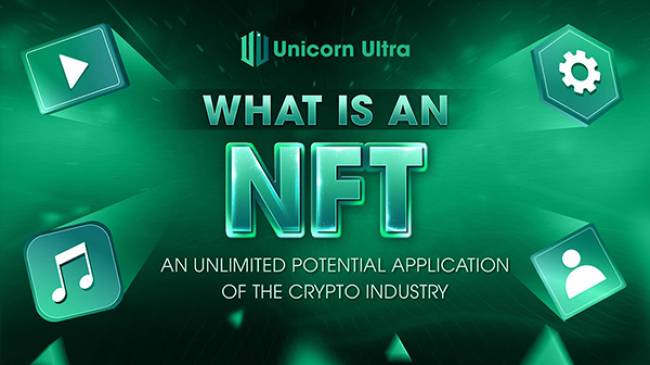
What is an NFT? An NFT, short for Non-Fungible Token, represents a distinctive digital marker meticulously stored within a blockchain. Its primary purpose lies in certifying ownership and verifying authenticity, and it possesses the extraordinary quality of being impervious to duplication, substitution, or subdivision. This ownership record is securely etched into the blockchain and can be transferred by the owner, facilitating the buying and selling of NFTs.
Remarkably, NFTs can be generated by individuals with little to no coding expertise, and they frequently encapsulate references to various digital assets like artworks, photographs, videos, and audio files. It's essential to differentiate NFTs from cryptocurrencies, as the former are one-of-a-kind, while the latter are fungible by nature.
Characteristics of NFTs
Because NFTs are a way to store different materials on blockchains, they possess the basic characteristics of blockchain tokens in general and NFT characteristics in particular:
- - Uniqueness: These tokens are unique; even if others create identical materials, they will still differ from those previously made.
- - Perpetuity: The existence of these tokens is permanent, along with the information in that token, such as messages, photos, sounds, data, etc.
- - Programmable: NFTs are also lines of code on the blockchain, and the author of an NFT can always be verified, regardless of how many owners have been before.
- - No licensing required: If the NFT was created on an open blockchain network, the NFT also inherits the network's property of being arbitrarily accessible.
- - Ownership: NFT holders have complete discretion to own and use the NFT.
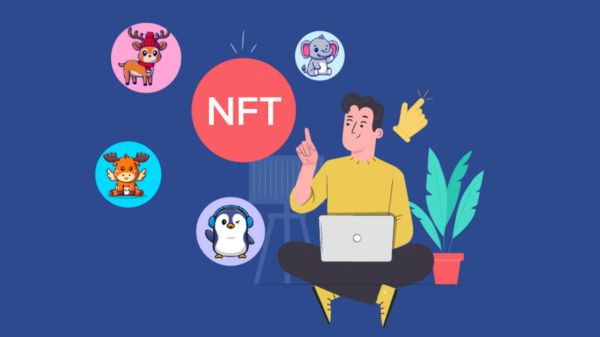
How does NFT work?
Valuation
Valuing the NFT is similar to respecting a precious painting or item in real life; just as more people think it is unique and valuable, its value will increase. This contrasts with a token, where more offers will increase buying demand.
Example: There are abstract paintings that are pretty difficult to understand and valued at several thousand dollars, but not many people understand them.
NFT Standard Tokens
Usually, on the Ethereum blockchain, tokens are standard in ERC-20. But for NFT, many standard tokens are applied, and the most typical of them are ERC-71 and ERC-1155:
- - ERC-721: For each new NFT token, the developer has to deploy a new smart contract, which wastes resources and takes time to build.
- - ERC-1155: This newer generation of improvements has yet to be popular. With ERC-1155, a developer can generate both Fungible and Non-fungible tokens in a single smart contract and generate infinite tokens on a single contract.
NFT Archive
NFTs cannot be copied or transformed without the owner's permission; not even the issuer of the NFT has that right. And to store NFT, its owners can use the same wallets as other cryptocurrencies and tokens.
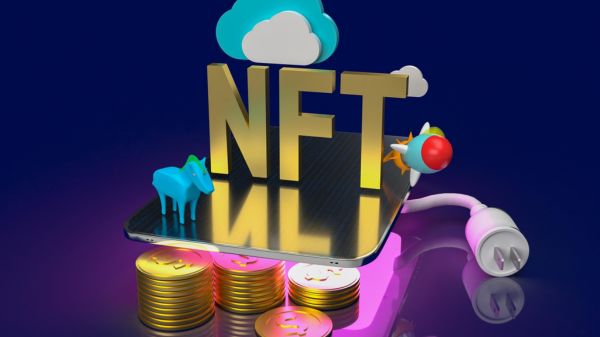
Where to Buy NFTs?
When an individual makes the first purchase of a non-fungible token (NFT), this transaction is commonly referred to as "minting." However, it is important to note that the act of minting does not actually create the NFT; rather, it activates a smart contract that has already been established and allocates the NFT to a specific position on the blockchain network.
NFTs are essentially non-fungible cryptocurrencies that share many of the same features as other blockchain technologies. Once an NFT has been created, it becomes immutable on the blockchain, and its transactions can be viewed by anyone on the network. While it is technically possible to develop a personal blockchain for minting and creating NFTs, most individuals opt to utilize an NFT marketplace. These marketplaces come in two different forms: centralized and decentralized.
Centralized NFT Marketplaces
One fundamental difference between a centralized marketplace and a decentralized one is the level of restrictions placed on user activity. Anthony Georgiades, a co-founder of Pastel Network, a layer one blockchain, explains that in a centralized marketplace, users are not required to ensure that they are not infringing on any copyrights, as the marketplace takes care of such legalities. This contrasts with a decentralized marketplace, where users have more autonomy to conduct transactions without external oversight or restrictions. In this sense, a centralized marketplace offers more structured control over user activity, while a decentralized marketplace offers greater user independence and less regulatory intervention.
Decentralized NFT Marketplaces
On the flip side, it's worth noting that the decentralized nature of marketplaces means that anyone could potentially list anything for sale, including items that may infringe on copyright or even fraudulent NFTs. These factors could negatively impact the value of your investment, making it important to exercise caution and do your due diligence before making any purchases.
Furthermore, when users create an NFT, they will be charged a gas fee in addition to the initial purchase price. A gas fee is an additional cost that blockchain networks levy for the use of their computational resources. While Ethereum currently stands as the largest network for NFTs, other networks such as Cardano, Flow, and Solana are also available.
It's worth noting that each blockchain network supporting NFTs comes with its own set of advantages and disadvantages. Some networks may also require a gas fee for NFT minting, and users should take this into account when deciding which network to use. In terms of gas fees, Solana may be a better option compared to other cryptocurrencies that support NFTs. As such, when creating or buying NFTs, it's important to factor in the gas fees for the network you plan to use.
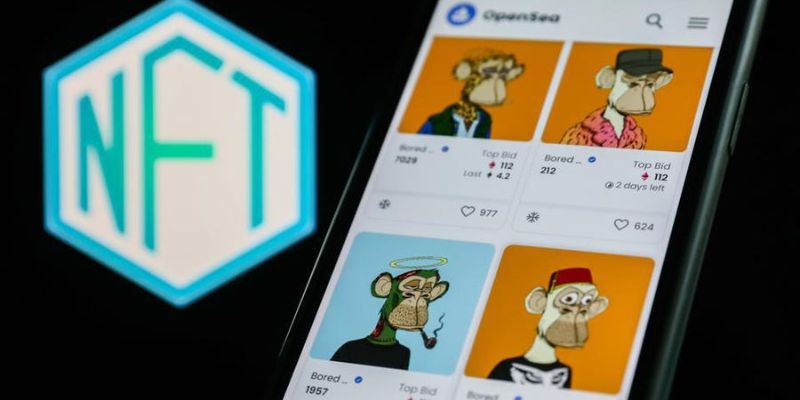
How to buy NFTs?
There are 4 steps to purchase NFTs
Choose and fund a cryptocurrency wallet
Before purchasing NFTs, you must have the necessary tools for transactions on NFT marketplaces. This includes having a cryptocurrency wallet with sufficient funds to conduct transactions. There are numerous cryptocurrency wallets available, and novice NFT investors might find it beneficial to opt for one of the widely used options, like MetaMask, as they typically offer greater versatility when connecting to most exchanges.
Select a marketplace and establish an account
Subsequently, select the NFT exchange or marketplace of your preference and set up an account. The specific steps may vary depending on the chosen exchange, but generally, it will involve inputting personal information and, notably, linking your cryptocurrency wallet to the exchange.
Link your wallet with the exchange
Once more, the precise procedures for linking your cryptocurrency wallet to your selected exchange may differ. However, if you're utilizing a well-known wallet and connecting it to a prominent exchange, such as using a MetaMask wallet and linking it to your account, the process should be relatively uncomplicated.
You will typically be asked to link your wallet to the exchange through your user profile, which will grant you access to the marketplace. While the exact process might differ, once your wallet is successfully connected to your account, and your information is uploaded accurately, you can begin exploring the NFT market.
Select and acquire an NFT
Having a well-funded and linked wallet, the process of searching for and buying NFTs on most prominent marketplaces should resemble the experience of purchasing almost anything else online. You can search for or choose the NFT you desire, review its price, and make a decision on whether to proceed with the transaction.
Following that, it's a matter of clicking the "purchase" button. Subsequently, you should observe the NFT in your wallet.
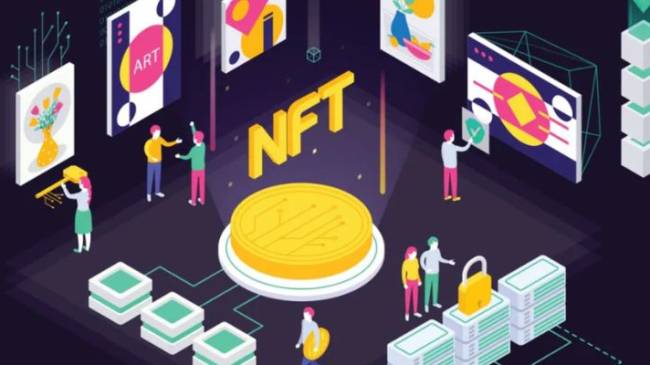
Why is NFT valuable?
Anyone who owns an asset expects it to increase in value to make a profit, and its value is not outside of market demand. The value of the NFT is the same.
Basically, each NFT is valued based on three properties:
- - Value in terms of collateral: By real property. For example, if US dollars are backed for USDT and USDC, the NFT is guaranteed in the game, increasing the value and rarity of that NFT.
- - Application value: Application in storage, ensuring credibility.
- - Expected Value: Expresses the buyer's expectation that the price will increase.
However, there are also opinions that the value of NFT is a paradox that is difficult to answer accurately because each person has a different assessment of NFT based on their preferences and many other factors. In other words, whether an NFT is valuable is still primarily based on sentiment. Some people still deny the value of NFT, seeing it as just a market trend created by industry giants to "hype" to inflate prices for NFT projects.
What are NFTs used for?
The reasons for purchasing NFTs are numerous, with the potential to serve multiple purposes. Here are a few examples:
One reason to acquire NFTs is for display purposes, as there are various digital displays and frames available to showcase them in your home.
Another motivation for buying NFTs could be for investment purposes. Many NFTs have the potential to increase in value over time, particularly those created by well-known artists or part of established collections.
Additionally, NFTs are increasingly being traded on a fast-growing secondary market, with traders seeking to make a return on their initial investment using a range of trading strategies such as buying the floor (acquiring NFTs at the lowest price) or buying the ceiling (purchasing rare or valuable NFTs).
Moreover, NFTs can also be used on the internet in various ways. Some people use their NFTs as profile pictures or avatars, while others display them in virtual galleries, meeting rooms, or private spaces within the Metaverse. This opens up a whole new world of possibilities for creators, collectors, and enthusiasts to engage with and showcase their NFTs in innovative and exciting ways.
How to choose the right NFT
Mike Jelinek, an NFT investor, believes that NFTs offer both high potentials for reward and risk. He advises investors to consider their budget and risk tolerance and to set short-term, medium-term, and long-term goals for their investments. As the NFT market is still young and speculative, it is important to take the time to reflect on personal goals and investment preferences before entering the space.
There are different types of NFTs to consider, such as single edition NFTs, multi-edition NFTs, NFTs for resale on an active secondary market, and utility NFTs. Jelinek emphasizes the importance of utility NFTs, as they often offer more than just a static picture. Many of the best NFTs have a utility built into them, such as community, social aspects, games, and events. Some NFT projects even offer different mechanisms of earning passive income. Therefore, it is important to understand the type of NFT you want to invest in and the potential benefits it can provide beyond just a digital asset.
NFTs and Smart Contracts
An NFT smart contract refers to a situation where the contract for the sale and ownership rights of non-fungible tokens is automatically carried out through the underlying code of the smart contract.
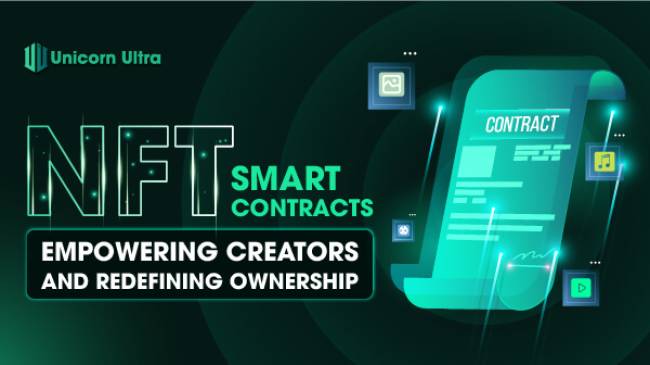
More on the NFT Smart Contract
The NFT smart contract contains essential information about the digital asset it represents, such as the creator's details, ownership history, and any royalties or fees the creator is entitled to receive upon secondary sales. Once the NFT is minted, it can be bought, sold, and traded on various blockchain marketplaces.
Can NFTs be Physical Goods?
While NFTs are primarily associated with digital assets, their potential extends beyond the virtual realm. One exciting concept that has gained traction is tokenizing physical goods. By linking a physical item to an NFT via a smart contract, the ownership and authenticity of the tangible object can be verified and recorded on the blockchain. This opens up exciting possibilities for provenance tracking of rare collectibles, limited-edition merchandise, and luxury items, providing buyers with peace of mind and value retention.
Other Uses for NFTs
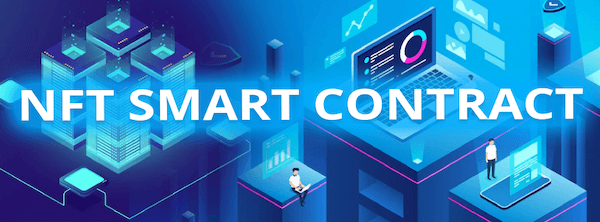
Beyond art and collectibles, NFTs are finding applications in various sectors. In the gaming industry, NFTs are revolutionizing the concept of in-game assets, allowing players to truly own their virtual belongings and trade them freely. Additionally, virtual real estate marketplaces are emerging, where users can purchase and develop digital properties using NFTs.
Furthermore, NFTs are making waves in the music and entertainment industry by enabling artists to tokenize their creations and directly engage with their fanbase through unique experiences and perks. NFTs have the potential to empower content creators and grant them more control over their work, challenging traditional intermediaries.
How do NFTs Affect the Economy of Creators?
The advent of NFTs has sparked significant changes in the economy of creators. By leveraging blockchain and smart contracts, artists, musicians, writers, and other content creators can tokenize their work and sell it directly to their audience. This direct-to-fan approach eliminates intermediaries, such as galleries, record labels, or publishing houses, allowing creators to retain a more substantial share of the revenue generated from their creations.
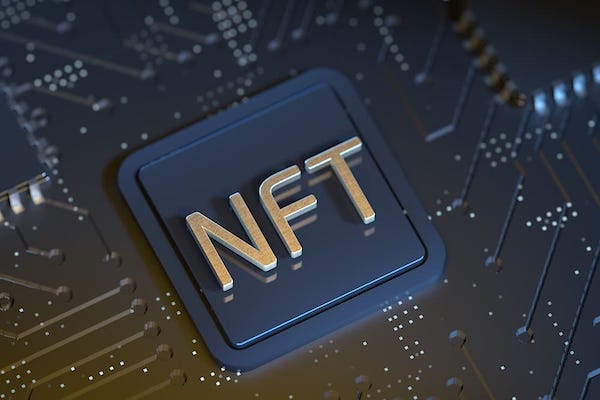
Moreover, NFTs introduce the concept of royalties, enabling creators to earn a percentage every time their tokenized work is resold in the secondary market. This ongoing revenue stream can be a game-changer for artists who have historically struggled to benefit from the appreciation of their work after the initial sale.
Conclusion
What is an NFT? What is an NFT smart contract? NFTs can be one of the use cases for cryptocurrencies with unlimited potential; however, their value depends on many aspects. Nevertheless, it is undeniable that NFTs have added diversity to the crypto industry and made the traditional market more competitive and vibrant.
The writer hopes this article explains and provides essential information for those who find investment advice. Please note that your decision need to be based on your research, not only on this article. Follow https://uniultra.xyz/ to update more interesting knowledge about blockchain.
